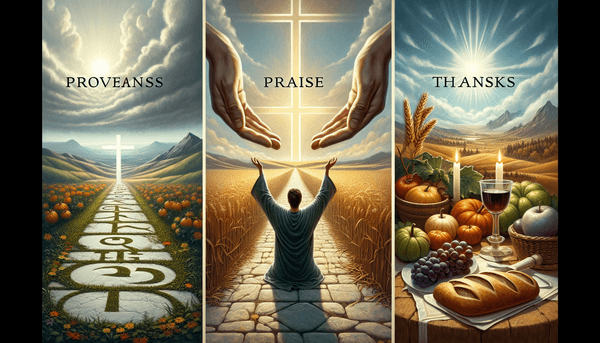The Crucifixion of Jesus and the Identity of Yahweh
The crucifixion of Jesus was not merely the outcome of political and religious machinations of His time; it was the centerpiece of God's salvific plan for humanity. Jesus' death on the cross is seen as the ultimate manifestation of divine love, as reflected in the often-quoted verse, 'For God so loved the world that he gave his one and only Son, that whoever believes in him shall not perish but have eternal life' (John 3:16). The events leading to His crucifixion, such as the crowd choosing Barabbas over Jesus (Matthew 27:20-23), were complex, yet they fulfilled the prophecies and divine will. Through the crucifixion, Jesus became the sacrificial lamb, bearing our iniquities, as foretold by Isaiah: 'But he was pierced for our transgressions, he was crushed for our iniquities' (Isaiah 53:5).
Conclusion
As we conclude this exploration of the depth of faith, from the garden of Gethsemane to the glory of the resurrection, we are reminded of the profound themes that underpin the Christian narrative. These stories and teachings offer us a glimpse into the heart of God and His plan for humanity, inviting us to reflect on our own lives and spiritual journeys. Whether we grapple with personal failings, seek companionship in times of trouble, or strive to understand the magnitude of Jesus' resurrection, the Bible provides both the questions and the answers. This discussion should encourage us to delve deeper into the mysteries of faith, to seek forgiveness, to cherish divine companionship, and to find hope in the promise of eternal life through Jesus Christ. For more insight into the significance of Jesus' life and its connection to his Jewish heritage, consider reading our related discussion on the Jewish heritage of Jesus and its impact on interfaith relations.
FAQ
Q: Why did only 3 disciples follow Jesus into the garden?
A: When Jesus went to the garden of Gethsemane, he took Peter, James, and John with him to pray. This was a time of great sorrow and distress for Jesus as he faced the impending betrayal and crucifixion. He sought their companionship and support during this challenging time.
Q: What is the significance of Jesus' resurrection?
A: The resurrection of Jesus Christ is a central event in Christian faith, demonstrating God's power over death and affirming Jesus as the Son of God. It offers hope of eternal life for believers and symbolizes the triumph over sin.
Q: What happens to those who don't get the word of God?
A: The Bible suggests that God's existence and divine nature are evident in creation, giving everyone a chance to recognize Him. However, it also emphasizes the importance of evangelism and the fair judgment of God, who understands the different revelations each person has received.
Q: What led to Jesus' crucifixion?
A: The crucifixion of Jesus was influenced by political, religious, and social factors, as religious leaders felt threatened by His teachings. Nonetheless, it was part of God's divine plan for salvation, as foretold in biblical prophecies.






